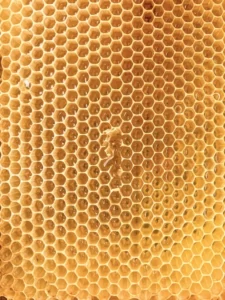Table of Contents
Manuka honey has been used for centuries in various aspects of everyday life, with its most popular use being as a natural sweetener. However, recent research has shown that manuka honey may have potential benefits for brain health, particularly in relation to depression. This article will explore the current literature on the effects of manuka honey on depression and discuss the possible underlying mechanisms.
The Potential of Manuka Honey for Depression
Depression is a common mental health disorder that affects millions of people worldwide. It is characterized by persistent feelings of sadness, loss of interest or pleasure in activities, and a range of physical and cognitive symptoms. While there are various treatment options available for depression, including medication and therapy, there is a growing interest in exploring the potential benefits of natural remedies, such as manuka honey.
Understanding the Mechanism
The exact mechanism by which manuka honey may alleviate symptoms of depression is not fully understood. However, there are several proposed mechanisms that researchers have explored. One possible mechanism is the antioxidant properties of manuka honey. Oxidative stress has been implicated in the development and progression of depression, and antioxidants can help reduce the damaging effects of oxidative stress on brain cells.
Another proposed mechanism is the anti-inflammatory properties of manuka honey. Chronic inflammation has been linked to depression, and reducing inflammation in the brain may help improve symptoms. Manuka honey contains compounds that have been shown to have anti-inflammatory effects, which could potentially contribute to its antidepressant properties.
Furthermore, manuka honey has been found to have neuroprotective effects. It may help protect brain cells from damage and promote their survival, which could be beneficial for individuals with depression, as they often have reduced brain volume and impaired neuronal function.
Research Findings
A review of the current literature on manuka honey and depression identified several studies that have explored its potential benefits. One study conducted on rats found that supplementation with manuka honey improved depressive-like behaviors and increased levels of certain neurotransmitters associated with mood regulation. Another study on mice showed that manuka honey supplementation reduced symptoms of depression and anxiety by modulating the activity of certain brain chemicals.
In a clinical trial involving human participants with depression, it was found that supplementation with manuka honey for a period of 8 weeks resulted in significant improvements in depressive symptoms compared to a placebo group. The participants reported reduced feelings of sadness and increased feelings of well-being and happiness.
Conclusion
While further research is needed to fully understand the effects of manuka honey on depression and its underlying mechanisms, the current literature suggests that it may have potential benefits for individuals with depression. Its antioxidant, anti-inflammatory, and neuroprotective properties could contribute to its antidepressant effects. However, it is important to note that manuka honey should not be used as a substitute for conventional treatment for depression, and individuals with depression should consult with a healthcare professional before incorporating manuka honey into their treatment regimen. Nevertheless, manuka honey shows promise as a natural remedy for depression and warrants further investigation.



